Exceptional Faculty Awards
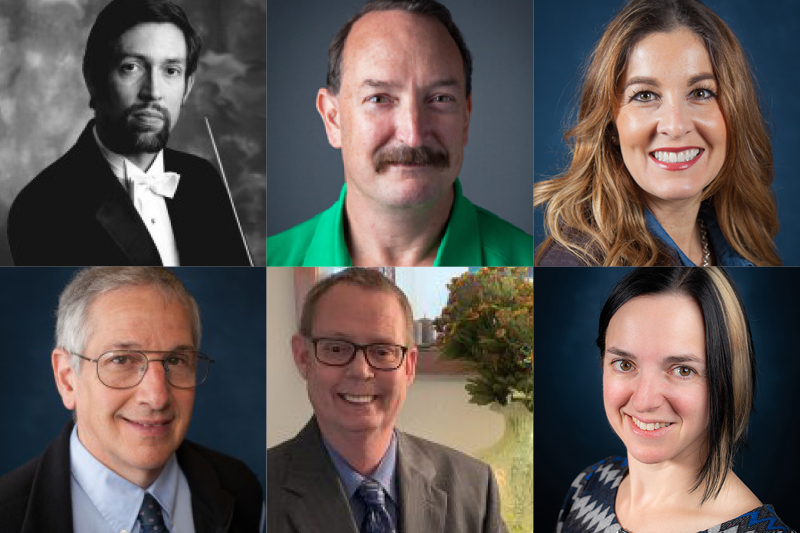
Six outstanding members of Clark College’s faculty have been recognized for their contributions to the college with a 2020 Clark College Exceptional Faculty Award.
These awards are presented annually to full-time and part-time faculty members. Nominations can be submitted by Clark College students, faculty, classified employees, administrators, alumni, Board members, and Foundation directors. Traditionally, they are announced during Commencement; because this year’s ceremony was online and abbreviated due to the COVID-19 outbreak, they were announced at a later date.
The awards are made possible through an endowed trust fund established by the Washington State Legislature and the Clark College Exceptional Faculty Endowment Fund, which was established in 1993. That fund provides recognition of exemplary work performance, positive impact on students, professional commitment, and other contributions to the college.
This year’s Exceptional Faculty members are:
Dr. Don Appert, professor of music
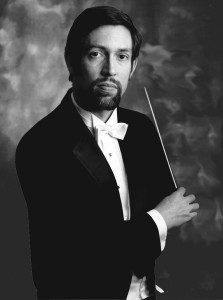
Dr. Don Appert just celebrated his 30th anniversary of teaching music at Clark College. The director of the Clark College Orchestra and head of the Music Department, Appert has earned many awards over his career, including the prestigious American Prize, the ASCAP Plus, and the Clark County Arts Commission Lifetime Achievement in the Arts Award.
“He doesn’t just ‘talk the talk,’” wrote one student in nominating Appert. “He truly embodies everything he teaches his students, from being punctual for class to practicing his instrument every day. He puts his students before himself and goes out of his way to create the best learning experience. He expects a lot from his students, but expects even more from himself.”
Appert earned his bachelor’s and master’s degrees in music, specializing in trombone, from the New England Conservatory. He earned his doctorate in orchestral conducting from the University of Kansas. In addition to his 30 years at Clark College, he has teaching experience at Centre College in Kentucky and at Hampton University in Virginia. As a member of ASCAP, most of Dr. Appert’s compositions have been performed throughout the world. He has appeared as a guest conductor in Japan, Australia, Central America, and throughout Europe. In the United States, he has appeared as a guest conductor of the Vancouver (Washington) Symphony, the University of Texas – Arlington Symphony Orchestra, the Eastern Washington University Symphony Orchestra, and the University of Central Arkansas Symphony.
Adam Coleman, professor of computer technology
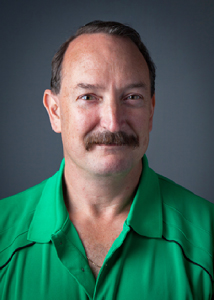
Adam Coleman’s connection to Clark College goes back to his own student years, when he earned his associate degree with a double major in Data Networking and Computer Networking from the college. He then went on to get his bachelor’s degree in Computer Technology at Eastern Washington University. He worked at SEH-America before returning to Clark College to teach, and in 2014 was named a tenured member of the college’s computer technology faculty.
Coleman has been active in serving on college committees and creating partnerships with local organizations geared toward helping people build careers. He was central in developing and implementing new courses designed to help students earn their Microsoft Technology Associate certification. An avid bike rider, Coleman represented the college in the American Diabetes Association’s annual Tour de Cure for years.
“Professor Coleman has been there for me since the beginning of my degree,” wrote one student in nominating Coleman. “He has always been attentive. He will sit down with me and work through questions or concerns. He pushes on. He keeps going no matter what.”
Molly Lampros, professor of communication studies
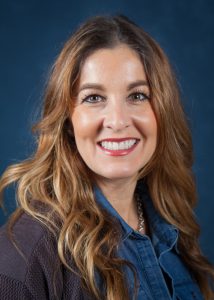
Molly Lampros joined Clark College’s communication studies faculty in 2010, and over the past decade she has taught classes including Introduction to Mass Media, Interpersonal Communications, and Small Group Communications. She has also given her energy and expertise to enrich the college beyond her classes, serving as a Phi Theta Kappa faculty advisor, giving presentations to colleagues on how to support students in the classroom, serving on scholarship and awards committees, and serving as a faculty mentor for student interns. Additionally, she has worked to create an Open Educational Resource for her classes—essentially, a free textbook that reduces expenses for her students. She is also certified in eLearning and Quality Matters.
“She’s fun, upbeat and always brings such a positive energy into class,” wrote one student in a nomination for Lampros. “She knows how to engage a class and make people want to participate, and she makes everyone feel included and heard. She makes you excited to come to class.”
Lampros earned her Bachelor of Arts degree in communication studies and psychology and her Master of Science degree in communication studies and conflict resolution from Portland State University. She earned her Master of Arts in Teaching in English language education from Pacific University. In addition to her decade of teaching at Clark College, she has teaching experience at Portland State University and the Oregon Institute of Technology. She also gets to put her communications expertise to work in a practical environment as co-owner of the Helvetia Tavern in Hillsboro, Oregon.
Ken Luchini, professor of mechatronics
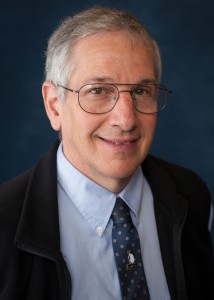
Kenneth Luchini earned his associate degree in industrial electronics from Diablo Valley College in California. He earned his Bachelor of Science degree in industrial electronics and computer technology from California State University Chico, and completed Master Studies in instructional processes in vocational education at the University of California Berkeley Extension. His work experience includes more than two decades as an electrical engineer, as well as 10 years as an electronics technician and eight years as a full-time college vocational education instructor in electronics and industrial automation.
Luchini earned tenure at Clark College in 2016. At the college, he serves as the faculty advisor for the MechaNerds, a student club devoted to mechatronics. He was also co-principal investigator for the Clark College Rural Access Mechatronics Program (RAMP), a program that developed “hybrid” (combination online and face-to-face) curriculum to serve rural portions of the college’s service district through a grant from the National Science Foundation’s Advanced Technological Education program.
“The amount of one-on-one time he provides is amazing,” wrote a student. “While he is inexhaustible in the classroom, that is not where his day ends. He’s always available after hours for discussion/clarification, and prides himself on getting you the right (or best!) answer.”
Thomas Stevenson, professor of communication studies
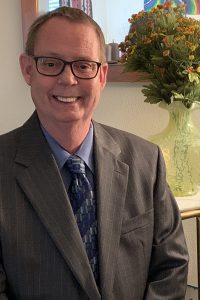
Thomas Stevenson has taught in the Communication Studies department of Clark College since 2010, teaching classes that include Interpersonal Communication, Small Group Communication, and Public Speaking. Before he began teaching, he had a long career as a newspaper reporter and editor.
A graduate of Portland State University, Stevenson earned a Bachelor’s Degree in Community Development (with additional focus on Communication Studies) and a Master’s Degree in Communication Studies (with additional focus on Conflict Resolution), both with honors. In addition to his decade at Clark, he has teaching experience at Portland State University, Portland Community College, and Chemeketa Community College.
“I became a much better communicator after I attended both Interpersonal Communication and Small Group Communication classes from Tom,” wrote one student in nomination Stevenson. “His enthusiasm and compassion have a huge impact on students. I am grateful for the conflict-resolving skills I’ve gained to deal when I work in a group and use these skills in my family. Using perception-checking has helped me understand how to solve misunderstandings and conflicts.”
Lauren Zavrel, professor of adult basic education at Larch Corrections Center
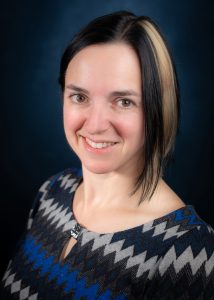
While academia is full of highly specialized fields, Lauren Zavrel has built a career path that might be considered unusual even by the standards of higher education: For the past decade, she has taught in correctional facilities. She has served on the faculty of Clark College’s Adult Basic Education program at Larch Corrections Center since 2016, earning praise from her students for her inclusive, supportive teaching style.
“Ms. Z treats us as students first, not inmates,” wrote one student in their nomination. “She works with you on an individual level. She has a lot of respect for cultural differences and is aware of how cultural differences might play out in the classroom. She is accepting of all backgrounds. She actively recruits and hires Teacher Assistants from different backgrounds so that her students see themselves reflected in teacher’s assistants.”
Zavrel first discovered a love of teaching as a motorcycle safety instructor and began her academic teaching career in English as a Second Language. She earned her Bachelor of Arts degree in Romance languages and her Graduate Certificate in nonprofit management from the University of Oregon and her Master of Education degree in adult and higher education from Oregon State University. In addition to her time at Clark, she has teaching experience with Lane Community College, Lane County Adult Corrections, Clackamas Community College, Clackamas County Jail, the American Red Cross, and Team Oregon Motorcycle Safety Program. At Larch, Zavrel helped develop the first-ever tutoring program in a correctional facility to be certified by the College Reading and Learning Association. She also saw a record number of inmates earn their GEDs in the 2019-2020 academic year.